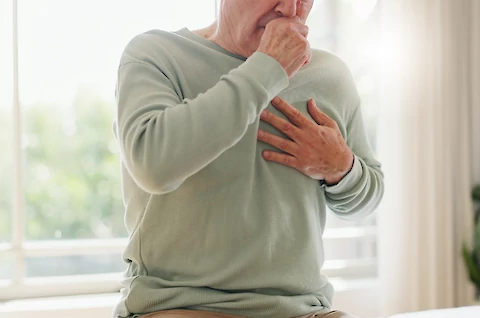
February is more than just a month of love; it's American Heart Month—an essential period for raising awareness about heart health. One important aspect of this is understanding heart attacks, particularly in our aging population. Unfortunately, heart attacks in seniors do not always present with the dramatic, clutch-the-chest symptoms often depicted in the media. In reality, the signs can be far more subtle, yet they require immediate attention and treatment.
Understanding Heart Attacks in Seniors
A heart attack, or myocardial infarction, is a serious medical emergency that occurs when the blood supply to part of the heart muscle is blocked, usually by a blood clot. Seniors, given their age and potential underlying health conditions, are at a higher risk for developing these complications.
While we often visualize a heart attack as someone gripping their chest and dropping to the floor—thanks to dramatic interpretations in films and television—the reality can be more varied and less obvious.
Heart Attack Signs to Watch Out For
There are several subtle signs to keep an eye out for when caring for senior loved ones, these include:
- Fatigue, sometimes extreme, can be a subtle sign of heart attacks in seniors. This isn't the normal tiredness that comes and goes with everyday life but rather a profound, abrupt fatigue that you can't attribute to lack of sleep or overworking.
- Shortness of breath is another indicative symptom. Seniors may suddenly find themselves gasping for air during simple tasks that they used to perform with ease.
- Light-headedness or sudden dizziness can also suggest a heart problem, particularly if it occurs in conjunction with other symptoms. It is important to immediately address any sudden feeling of disorientation or unsteadiness.
- Indigestion, nausea, or abdominal pain, particularly in women, can be signs of a heart attack. These symptoms are often mistaken for less severe conditions, such as acid reflux or stomach upset, resulting in delayed treatment.
- Sleep disturbances such as insomnia or waking up short of breath can be an unnoticed sign of potential heart attacks in seniors.
- A persistent cough or wheezing, particularly when accompanied by pink or white mucus, may indicate heart failure, a condition that can occur after a heart attack.
- Finally, unexplained swelling in the legs, ankles, and feet could indicate that the heart isn't pumping blood effectively.
If you identify any of these symptoms, seek medical support immediately.
The Importance of Immediate Treatment
The importance of immediate treatment in the event of a heart attack cannot be overstated. Quick medical intervention can significantly reduce the amount of damage to the heart muscle, potentially saving lives and preventing long-term health implications. A delay in treatment can result in more extensive heart damage or even prove fatal.
The Role of Caregivers in Recognizing Heart Attacks in Seniors
Caregivers play an integral role in recognizing the subtle signs of heart attacks in seniors. Being aware of these symptoms can aid in early detection and prompt treatment, possibly preventing severe damage. A caregiver's understanding of these signs can make the difference between life and death. It's a heavy responsibility, but one that comes with the territory of elder care.
Heart health is a critical aspect of senior care, and understanding the more discreet signs of a heart attack could be life-saving. Recognizing these signs is our best defense against the devastating impacts of heart attacks on our senior population.
People living in Colleyville, Euless, Grapevine, Southlake, and Roanoke should feel confident in knowing that Senior Helpers Grapevine Lake is available for professional assistance. Our caregivers can help with basic in-home care, including post-heart attack assistance for seniors. Contact us today to learn more about the support we can provide.